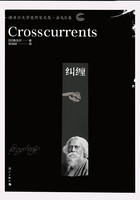The Chateau D'If
The commissary of police, as he traversed the ante-chamber, made a sign to two gendarmes, who placed themselves one on Dantès'right and the other on his left. A door that communicated with the Palais de Justice was opened, and they went through a long range of gloomy corridors, whose appearance might have made even the boldest shudder. The Palais de Justice communicated with the prison,—a sombre edifice, that from its grated windows looks on the clock-tower of the Accoules. After numberless windings, Dantès saw a door with an iron wicket. The commissary took up an iron mallet and knocked thrice, every blow seeming to Dantès as if struck on his heart. The door opened, the two gendarmes gently pushed him forward, and the door closed with a loud sound behind him. The air he inhaled was no longer pure, but thick and mephitic,—he was in prison. He was conducted to a tolerably neat chamber, but grated and barred, and its appearance, therefore, did not greatly alarm him; besides, the words of Villefort, who seemed to interest himself so much, resounded still in his ears like a promise of freedom. It was four o'clock when Dantès was placed in this chamber. It was, as we have said, the 1st of March, and the prisoner was soon buried in darkness. The obscurity augmented the acuteness of his hearing; at the slightest sound he rose and hastened to the door, convinced they were about to liberate him, but the sound died away, and Dantès sank again into his seat. At last, about ten o'clock, and just as Dantès began to despair, steps were heard in the corridor, a key turned in the lock, the bolts creaked, the massy oaken door flew open, and a flood of light from two torches pervaded the apartment. By the torchlight Dantès saw the glittering sabres and carbines of four gendarmes. He had advanced at first, but stopped at the sight of this display of force.
"Are you come to fetch me?" asked he.
"Yes," replied a gendarme.
"By the orders of the deputy procureur?"
"I believe so." The conviction that they came from M. de Villefort relieved all Dantès'apprehensions; he advanced calmly, and placed himself in the centre of the escort. A carriage waited at the door, the coachman was on the box, and a police officer sat beside him.
"Is this carriage for me?" said Dantès.
"It is for you," replied a gendarme.
Dantès was about to speak; but feeling himself urged forward, and having neither the power nor the intention to resist, he mounted the steps, and was in an instant seated inside between two gendarmes; the two others took their places opposite, and the carriage rolled heavily over the stones.
The prisoner glanced at the windows—they were grated; he had changed his prison for another that was conveying him he knew not whither. Through the grating, however, Dantès saw they were passing through the Rue Caisserie, and by the Rue Saint-Laurent and the Rue Taramis, to the port. Soon he saw the lights of La Consigne.
The carriage stopped, the officer descended, approached the guardhouse, a dozen soldiers came out and formed themselves in order; Dantès saw the reflection of their muskets by the light of the lamps on the quay.
"Can all this force be summoned on my account?" thought he.
The officer opened the door, which was locked, and, without speaking a word, answered Dantès'question; for he saw between the ranks of the soldiers a passage formed from the carriage to the port. The two gendarmes who were opposite to him descended first, then he was ordered to alight and the gendarmes on each side of him followed his example. They advanced towards a boat, which a custom-house officer held by a chain, near the quay.
The soldiers looked at Dantès with an air of stupid curiosity. In an instant he was placed in the stern-sheets of the boat, between the gendarmes, while the officer stationed himself at the bow; a shove sent the boat adrift, and four sturdy oarsmen impelled it rapidly towards the Pilon. At a shout from the boat, the chain that closes the mouth of the port was lowered and in a second they were, as Dantès knew, in the Frioul and outside the inner harbor.
The prisoner's first feeling was of joy at again breathing the pure air—for air is freedom; but he soon sighed, for he passed before La Réserve, where he had that morning been so happy, and now through the open windows came the laughter and revelry of a ball. Dantès folded his hands, raised his eyes to heaven, and prayed fervently.
The boat continued her voyage. They had passed the Tete de Morte, were now off the Anse du Pharo, and about to double the battery. This manoeuvre was incomprehensible to Dantès.
"Whither are you taking me?" asked he.
"You will soon know."
"But still"—
"We are forbidden to give you any explanation." Dantès, trained in discipline, knew that nothing would be more absurd than to question subordinates, who were forbidden to reply; and so he remained silent.
The most vague and wild thoughts passed through his mind. The boat they were in could not make a long voyage; there was no vessel at anchor outside the harbor; he thought, perhaps, they were going to leave him on some distant point. He was not bound, nor had they made any attempt to handcuff him; this seemed a good augury. Besides, had not the deputy, who had been so kind to him, told him that provided he did not pronounce the dreaded name of Noirtier, he had nothing to apprehend? Had not Villefort in his presence destroyed the fatal letter, the only proof against him?
He waited silently, striving to pierce through the darkness.
They had left the Ile Ratonneau, where the lighthouse stood, on the right, and were now opposite the Point des Catalans. It seemed to the prisoner that he could distinguish a feminine form on the beach, for it was there Mercédès dwelt. How was it that a presentiment did not warn Mercédès that her lover was within three hundred yards of her?
One light alone was visible; and Dantès saw that it came from Mercédès'chamber. Mercédès was the only one awake in the whole settlement. A loud cry could be heard by her. But pride restrained him and he did not utter it. What would his guards think if they heard him shout like a madman?
He remained silent, his eyes fixed upon the light; the boat went on, but the prisoner thought only of Mercédès. An intervening elevation of land hid the light. Dantès turned and perceived that they had got out to sea. While he had been absorbed in thought, they had shipped their oars and hoisted sail; the boat was now moving with the wind.
In spite of his repugnance to address the guards, Dantès turned to the nearest gendarme, and taking his hand,—
"Comrade," said he, "I adjure you, as a Christian and a soldier, to tell me where we are going. I am Captain Dantès, a loyal Frenchman, thought accused of treason; tell me where you are conducting me, and I promise you on my honor I will submit to my fate."
The gendarme looked irresolutely at his companion, who returned for answer a sign that said, "I see no great harm in telling him now," and the gendarme replied,—
"You are a native of Marseilles, and a sailor, and yet you do not know where you are going?"
"On my honor, I have no idea."
"Have you no idea whatever?"
"None at all."
"That is impossible."
"I swear to you it is true. Tell me, I entreat."
"But my orders."
"Your orders do not forbid your telling me what I must know in ten minutes, in half an hour, or an hour. You see I cannot escape, even if I intended."
"Unless you are blind, or have never been outside the harbor, you must know."
"I do not."
"Look round you then." Dantès rose and looked forward, when he saw rise within a hundred yards of him the black and frowning rock on which stands the Chateau d'If. This gloomy fortress, which has for more than three hundred years furnished food for so many wild legends, seemed to Dantès like a scaffold to a malefactor.
"The Chateau d'If?" cried he, "what are we going there for?" The gendarme smiled.
"I am not going there to be imprisoned," said Dantès; "it is only used for political prisoners. I have committed no crime. Are there any magistrates or judges at the Chateau d'If?"
"There are only," said the gendarme, "a governor, a garrison, turnkeys, and good thick walls. Come, come, do not look so astonished, or you will make me think you are laughing at me in return for my good nature." Dantès pressed the gendarme's hand as though he would crush it.
"You think, then," said he, "that I am taken to the Chateau d'If to be imprisoned there?"
"It is probable; but there is no occasion to squeeze so hard."
"Without any inquiry, without any formality?"
"All the formalities have been gone through; the inquiry is already made."
"And so, in spite of M. de Villefort's promises?"
"I do not know what M. de Villefort promised you," said the gendarme, "but I know we are taking you to the Chateau d'If. But what are you doing? Help, comrades, help!"
By a rapid movement, which the gendarme's practiced eye had perceived, Dantès sprang forward to precipitate himself into the sea; but four vigorous arms seized him as his feet quitted the bottom of the boat. He fell back cursing with rage.
"Good!" said the gendarme, placing his knee on his chest; "believe soft-spoken gentlemen again! Harkye, my friend, I have disobeyed my first order, but I will not disobey the second; and if you move, I will blow your brains out." And he levelled his carbine at Dantès, who felt the muzzle against his temple.
For a moment the idea of struggling crossed his mind, and of so ending the unexpected evil that had overtaken him. But he bethought him of M. de Villefort's promise; and, besides, death in a boat from the hand of a gendarme seemed too terrible. He remained motionless, but gnashing his teeth and wringing his hands with fury.
At this moment the boat came to a landing with a violent shock. One of the sailors leaped on shore, a cord creaked as it ran through a pulley, and Dantès guessed they were at the end of the voyage, and that they were mooring the boat.
His guards, taking him by the arms and coat-collar, forced him to rise, and dragged him towards the steps that lead to the gate of the fortress, while the police officer carrying a musket with fixed bayonet followed behind.
Dantès made no resistance; he was like a man in a dream: he saw soldiers drawn up on the embankment; he knew vaguely that he was ascending a flight of steps; he was conscious that he passed through a door, and that the door closed behind him; but all this indistinctly as through a mist. He did not even see the ocean, that terrible barrier against freedom, which the prisoners look upon with utter despair.
They halted for a minute, during which he strove to collect his thoughts. He looked around; he was in a court surrounded by high walls; he heard the measured tread of sentinels, and as they passed before the light he saw the barrels of their muskets shine.
They waited upwards of ten minutes. Certain Dantès could not escape, the gendarmes released him. They seemed awaiting orders. The orders came.
"Where is the prisoner?" said a voice.
"Here," replied the gendarmes.
"Let him follow me; I will take him to his cell."
"Go!" said the gendarmes, thrusting Dantès forward.
The prisoner followed his guide, who led him into a room almost under ground, whose bare and reeking walls seemed as though impregnated with tears; a lamp placed on a stool illumined the apartment faintly, and showed Dantès the features of his conductor, an under-jailer, ill-clothed, and of sullen appearance.
"Here is your chamber for to-night," said he. "It is late, and the governor is asleep. Tomorrow, perhaps, he may change you. In the meantime there is bread, water, and fresh straw; and that is all a prisoner can wish for. Goodnight." And before Dantès could open his mouth—before he had noticed where the jailer placed his bread or the water—before he had glanced towards the corner where the straw was, the jailer disappeared, taking with him the lamp and closing the door, leaving stamped upon the prisoner's mind the dim reflection of the dripping walls of his dungeon.
Dantès was alone in darkness and in silence—cold as the shadows that he felt breathe on his burning forehead. With the first dawn of day the jailer returned, with orders to leave Dantès where he was. He found the prisoner in the same position, as if fixed there, his eyes swollen with weeping. He had passed the night standing, and without sleep. The jailer advanced; Dantès appeared not to perceive him. He touched him on the shoulder. Edmond started.
"Have you not slept?" said the jailer.
"I do not know," replied Dantès. The jailer stared.
"Are you hungry?" continued he.
"I do not know."
"Do you wish for anything?"
"I wish to see the governor." The jailer shrugged his shoulders and left the chamber.
Dantès followed him with his eyes, and stretched forth his hands towards the open door; but the door closed. All his emotion then burst forth; he cast himself on the ground, weeping bitterly, and asking himself what crime he had committed that he was thus punished.
The day passed thus; he scarcely tasted food, but walked round and round the cell like a wild beast in its cage. One thought in particular tormented him: namely, that during his journey hither he had sat so still, whereas he might, a dozen times, have plunged into the sea, and, thanks to his powers of swimming, for which he was famous, have gained the shore, concealed himself until the arrival of a Genoese or Spanish vessel, escaped to Spain or Italy, where Mercédès and his father could have joined him. He had no fears as to how he should live—good seamen are welcome everywhere. He spoke Italian like a Tuscan, and Spanish like a Castilian; he would have been free, and happy with Mercédès and his father, whereas he was now confined in the Chateau d'If, that impregnable fortress, ignorant of the future destiny of his father and Mercédès; and all this because he had trusted to Villefort's promise. The thought was maddening, and Dantès threw himself furiously down on his straw. The next morning at the same hour, the jailer came again.
"Well," said the jailer, "are you more reasonable to-day?" Dantès made no reply.
"Come, cheer up; is there anything that I can do for you?"
"I wish to see the governor."
"I have already told you it was impossible."
"Why so?"
"Because it is against prison rules, and prisoners must not even ask for it."
"What is allowed, then?"
"Better fare, if you pay for it, books, and leave to walk about."
"I do not want books, I am satisfied with my food, and do not care to walk about; but I wish to see the governor."
"If you worry me by repeating the same thing, I will not bring you any more to eat."
"Well, then," said Edmond, "if you do not, I shall die of hunger—that is all."
The jailer saw by his tone he would be happy to die; and as every prisoner is worth ten sous a day to his jailer, he replied in a more subdued tone.
"What you ask is impossible; but if you are very well behaved you will be allowed to walk about, and some day you will meet the governor, and if he chooses to reply, that is his affair."
"But," asked Dantès, "how long shall I have to wait?"
"Ah, a month—six months—a year."
"It is too long a time. I wish to see him at once."
"Ah," said the jailer, "do not always brood over what is impossible, or you will be mad in a fortnight."
"You think so?"
"Yes; we have an instance here; it was by always offering a million of francs to the governor for his liberty that an abbé became mad, who was in this chamber before you."
"How long has he left it?"
"Two years."
"Was he liberated, then?"
"No; he was put in a dungeon."
"Listen!" said Dantès. "I am not an abbé, I am not mad; perhaps I shall be, but at present, unfortunately, I am not. I will make you another offer."
"What is that?"
"I do not offer you a million, because I have it not; but I will give you a hundred crowns if, the first time you go to Marseilles, you will seek out a young girl named Mercédès, at the Catalans, and give her two lines from me."
"If I took them, and were detected, I should lose my place, which is worth two thousand francs a year; so that I should be a great fool to run such a risk for three hundred."
"Well," said Dantès, "mark this; if you refuse at least to tell Mercédès I am here, I will some day hide myself behind the door, and when you enter I will dash out your brains with this stool."
"Threats!" cried the jailer, retreating and putting himself on the defensive; "you are certainly going mad. The abbé began like you, and in three days you will be like him, mad enough to tie up; but, fortunately, there are dungeons here." Dantès whirled the stool round his head.
"All right, all right," said the jailer; "all right, since you will have it so. I will send word to the governor."
"Very well," returned Dantès, dropping the stool and sitting on it as if he were in reality mad. The jailer went out, and returned in an instant with a corporal and four soldiers.
"By the governor's orders," said he, "conduct the prisoner to the tier beneath."
"To the dungeon, then," said the corporal.
"Yes; we must put the madman with the madmen." The soldiers seized Dantès, who followed passively.
He descended fifteen steps, and the door of a dungeon was opened, and he was thrust in. The door closed, and Dantès advanced with outstretched hands until he touched the wall; he then sat down in the corner until his eyes became accustomed to the darkness. The jailer was right; Dantès wanted but little of being utterly mad.















